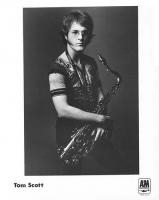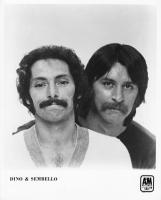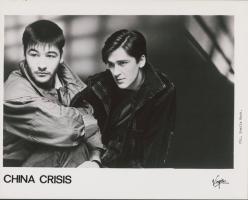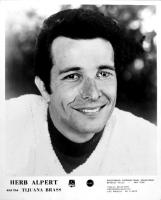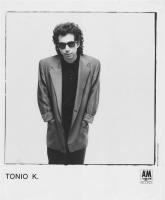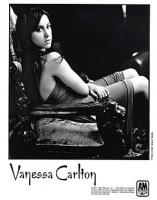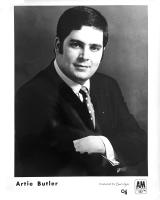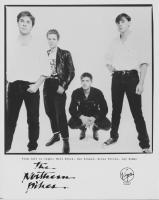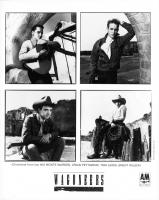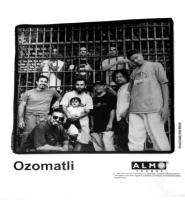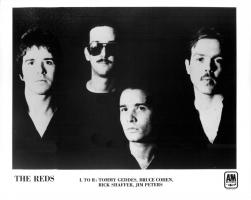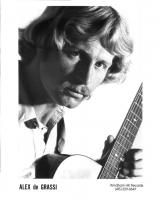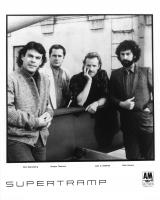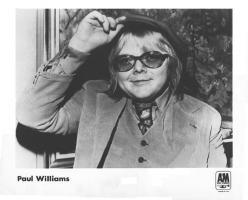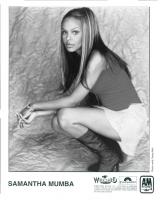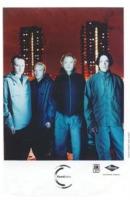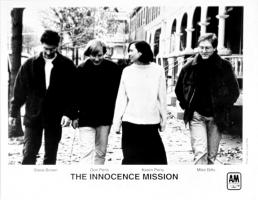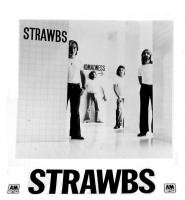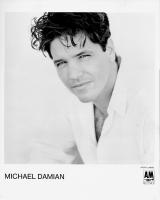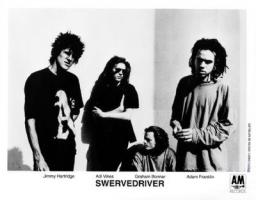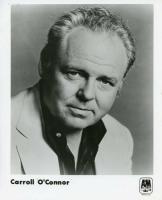A&M FILMS & VIDEO
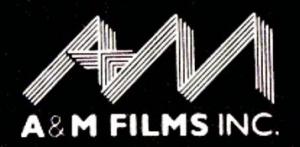
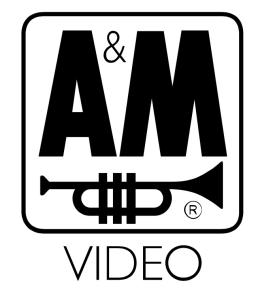
A&M FILMS
A&M Records hired John Urie & Associates to make promotional films for its artists. The first was for the Tijuana Brass. There was a four-minute film of "Out and About" by Tommy Boyce and Bobby Hart. The film was shot in both color and black and white. There were also an eight-minute film of Sergio Mendes & Brasil '66 and one for the Merry-Go-Round. The Brasil '66 film featured two songs from their current album and 17 photos of Lani Hall. The film was sent to television stations. A&M saw four benefits of using a film: (1) it was a professional way to reach localities; (2) it negated long promotional trips by artists to appear on local television stations, (3) it eliminated bad lip synchronization, and (4) the film could be played more than once. Films also helped A&M give artists exposure in foreign markets.
In April 1968, Herb Alpert and Jerry Moss announced that they had created a partnership with Perry Leff to create A&M Productions, a film and television subsidiary of A&M Records. Leff would be A&M Productions president and serve on its board of directors with Alpert as Executive Vice President, Moss as treasurer, Abe Somer as secretary and Gil Friesen as vice president. A&M Productions was located on the A&M Records lot. A&M Productions opened on May 1, 1968. Initial plans included using A&M recording artists in films and TV.
One of Leff's first film rights acquisitions was God Speed the Night by Jerome Ross and Dorothy Davies followed by A Case of Need by Jeffrey Hudson in August 1968.
In 1969 A&M canceled plans for A&M Films for financial reasons. Don Graham and Ed Rosenblatt left A&M Films as a result.
A&M Films first release came in April 1971 with Mad Dogs and Englishmen. A camera crew joined Joe Cocker and Leon Russell with 42 musicians, family and friends on their 1970 United States tour of 43 cities. The film was produced by Harry Marks, Pierre Aldidge and Bob Abel with Jerry Moss as the executive producer; Sidney Levin was its co-director and editor.
The next release from A&M was Love It Or Leave It. Gil Friesen and Perry Leff were the executive producers. The documentary featured Herb Alpert and Phil Ochs with Tina Louise, Richmond Shepard, Tim Rose, Van Dyke Parks and Richard Nixon. The premise was music videos combined with live action and documentary film footage relating to man's destruction of Earth.
"A&M News On the March" was the 1973 merchandising film for A&M's distributors, affiliates and employees. It was the fourth year that A&M had a merchandising film. It was produced by Clare Baren and Braverman Productions and written by Chuck Casell and Tom Gamache.
A&M Films was officially formed around July 1981 to acquire and develop properties for film, television and theater. Gil Friesen was named president and CEO and Andy Meyer was appointed Executive Vice President with responsibility for acquiring and developing properties and managing the company. A&M Films was to be mutually exclusive from A&M Records.
A&M Films oversaw production of promotional films, often of bands rehearsing on the A&M Soundstage. These promotional films were the forerunner to music videos.
A&M Films created motion pictures through three vehicles: (1) selling acquired properties to another studio, (2) splitting the rights with another production company or (3) raising money independently. A&M Records did not finance any of the 18 films that formed its catalog. The top box office draws were The Beast with $55.2M; La Bamba with $52.7M, The Breakfast Club with $45.8M,and S.F.W. with $44.2M in receipts. The other films all grossed less than $20M.
In October 1984 David Anderle was named to head the soundtrack division of A&M Records. One of the duties was to get A&M and Almo/Irving Music writers more involved in scoring for films, both for A&M Films and to other movie producers.
In 1985, A&M Films partnered with major studios to produce The Breakfast Club and Sting's Bring on the Night. In 1986, producer Dale Pollock joined A&M Films. He was elevated to president of the division in 1990.
A&M VIDEO
A&M Records hired Clare Baren in the 1971 to produce and direct viedo spots and presentations for retail and A&M field staff. At the time, it was rare for a record label to have in-house audio-visual production capabilities. A&M's capability also included scropt, copy and layouts. By 1978, the amount of visual media work had increased and A&M was able to keep costs reasonable with its inhouse team. When A&M used an outside firm, an A&Mer would produce or direct. The late 1970s also marked an increased demand for videos of live performances and for use in film and television as the trend to link the plot to music burgeoned. This new use required a better grasp of copyrights and credits based on the video's usage. Many of the A&M videos produced in the 1970s were filmed on the Chaplin Soundstage at A&M Records.
In 1983 A&M formally created A&M Music Video. The division oversaw the creation of market videos fot the home market and its promotional videos were serviced to broadcast and cable television and clubs. It also developed compilation tapes at $65 each.
"We set up A&M Video because we believed that visual music will become a complement to records. Essentially, if you like the video or the album, you will purchase both. We have to move beyond compilation reels to video programs that are cohesive, a complete package."--Laura Reitman, director of video (Billboard, October 27, 1984)
In 1987, A&M Video reduced the price on most of its catalog. The products at $29.95 were dropped to $19.98 and the $19.98 products to $14.95 as it re-released the catalog on August 11. The "R.E.M. Succumbs" and "Every Breath You Take--the Videos" by the Police remained at their retail price of $19.95.
A&M Video developed nearly 100 commercial music videos in Betamax, VHS, 8mm and Laser Disc formats.
When A&M Records was sold to PolyGram in 1989, A&M Films was included in the sale. A&M Films continued as a division of PolyGram until 1996 when it was deactivated.
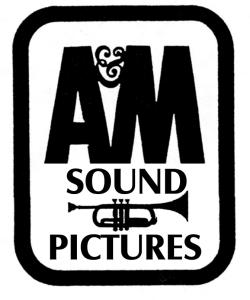
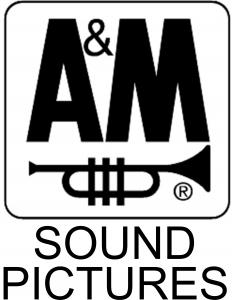
In Great Britain, A&M Films and A&M Video were referred to as A&M Sound Pictures for the following music videos and feature films:
Synchronicity: the Concert--Police (1980)
Pearls: the Video Show--Elkie Brooks (1982)
Party Party (1982)
Chris DeBurgh: the Video (1983)
Yesterday Once More--Carpenters (1986)
Bring on the Night--Sting (1987)
Control: the Videos--Janet Jackson (1987)
Sting: the Videos (1988)
Rhythmatist--Stewart Copeland (1988)
Mad Dogs and Englishmen--Joe Cocker (1988)
Track Record--Joan Armatrading (1989)
Worth Winning (1989)
Very Best of Joan Armatrading (1991)
The original distributor for A&M Sound Pictures was Videospace. Elkie Brooks' Pearls and Joan Armattrading's Track Record were first release via Videospace.
In May 1984 A&M Sound Pictures signed a distribution deal with Palace Virgin Gold (PVG). At the same time, A&M was promoting Styx's Caught In the Act Live! album with sleeve stuffers for the video that resulted in 1,000 orders for the video. The other release through PVG was Chris DeBurgh's The Video. Both titles were promoted in music and video publications. The Elkie Brooks and Joan Armatrading vides were transferred to PVG.
SOURCES:
Disk Mfrs. Pan in on TV Fimls with Pitch as Plot. Mike Gross. Billboard, July 22, 1967.
A&M Records Will Enter Film Production Field. Boxoffice, April 22, 1968.
A&M Productions to Film 'God Speed the Night.' Boxoffice, July 28, 1969.
'Mad Dogs and Englishmen' Records Released to Coincide with Premiere. Boxoffice, April 12, 1971.
Audio-Visual Production on Upswing at A&M. Sam Sutherland. Record World, September 12, 1978.
A&M Cuts Prices For Fall Promo. Jim McCullaugh. Billboard, July 18, 1987.

